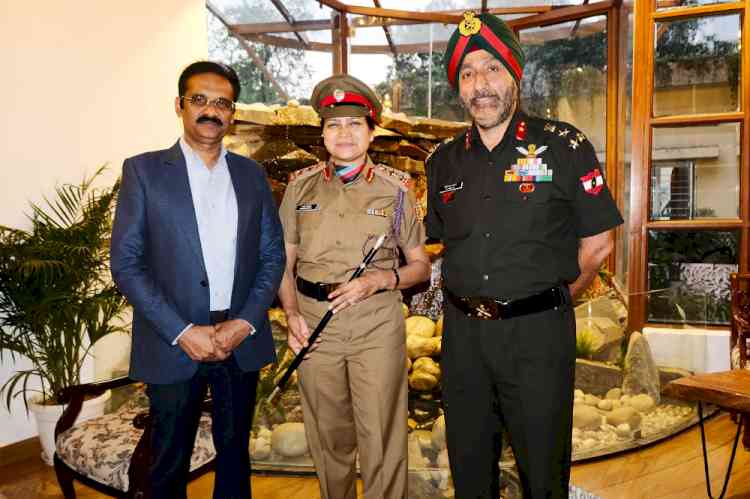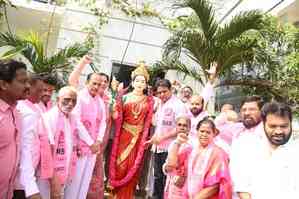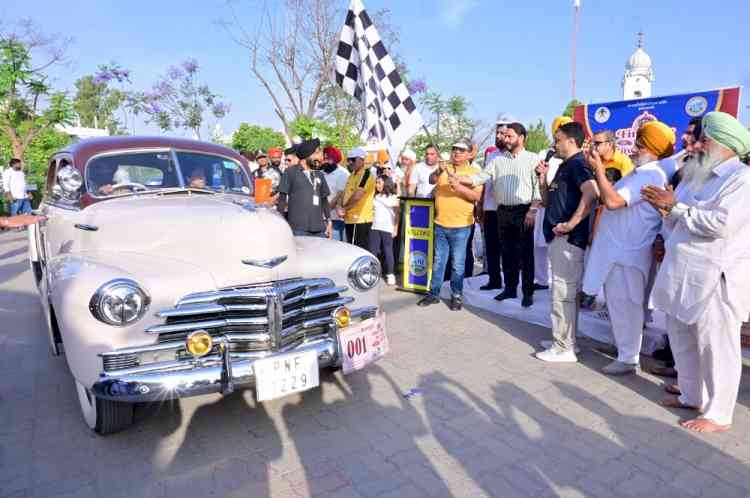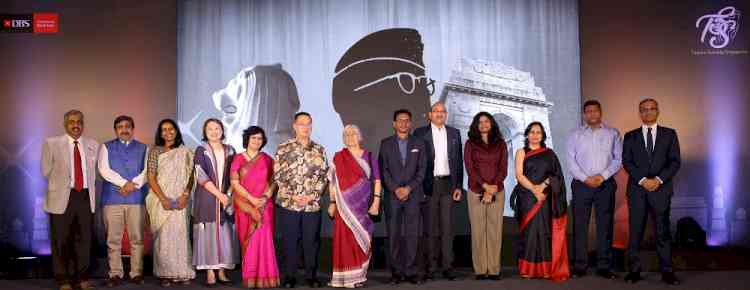AG favours multi-pronged approach to lift judiciary's image
New Delhi, June 19 (IANS) Attorney General Mukul Rohtagi Thursday said that lifting up the Indian judiciary's sagging image burdened with a backlog of 3.3 million cases required a multi-pronged approach and no single approach alone including...

New Delhi, June 19 (IANS) Attorney General Mukul Rohtagi Thursday said that lifting up the Indian judiciary's sagging image burdened with a backlog of 3.3 million cases required a multi-pronged approach and no single approach alone including reducing the number of holidays was going to solve the problem.
"Image of the judiciary is sagging and you have to shake every part of the judicial functioning," Rohatgi said adding that redundant laws and redundant procedures in criminal laws had to be shed.
Speaking to newsmen after assuming the charge of his office Rohatgi said that number of holidays should be scaled down but was not certain to what extent. At one point he suggested that summer break could be scaled down from existing seven weeks to two weeks.
He said that Supreme Court should be restored the status for which it was set up and that not every case should travel to apex court. He said that Supreme Court was not equipped to hear every decision of the high court or tribunals.
Officials should shed the mindset of leaving all contentious issues to the courts and not taking decisions themselves, Rohatgi said. "... these attitudes have to be changed."
The Attorney General called for a rethink that orders of the tribunals including that of National Green Tribunal or the Armed Forces Tribunal can be challenged directly before the Supreme Court. "You may have a statute but you can't take away the right under Article 226 (Power of high Courts to issue certain writs)," he said.
He favoured a multi-pronged strategy to reduce the number of cases coming to courts rooted in government - the biggest litigant.
Rohatgi also called for transparency in the working in of the Supreme Court including in the appointment of judges.
"What applies to government (transparent functioning) applies to judiciary also. Sunlight is the best disinfectant," he underlined, adding "transparency was the anti-thesis of arbitrariness".
He also favoured senior lawyers being consulted before the appointment of judges including elevation to the apex court.
Advocating more transparency in judges' appointment, Rohatgi said that all the stake holders including judiciary, government, lawyers and litigants should also be involved in the process.
"If a law is required to be changed then it can be changed," he when asked if there should be an amendment to overcome the existing collegium system of appointment of judges.
Ultimately these are experiments, he said, pointing out that for 40 years, it was the government that was appointing the judges and another 20 years that collegium system is in operation. "Now you need to have another experiment," he said espousing the National Judicial Commission for the appointment of judges.
Urging a time limit on the arguments by the counsel before the court, Rohatgi said that in no other country, arguments goes on for days, weeks and even months. He said that every counsel on the conclusion of arguments should give a four-five page written submission.
He said that the idea of the Negotiable Instrument Act was to scare the people so that they pay in bounced cheque cases, noting that conviction in these cases does not result in the recovery of money and parallel proceeding has got to be initiated for recovery.
"Why not give power to same judge to pass money decree also," Rohatgi observed.

 cityairnews
cityairnews 
















